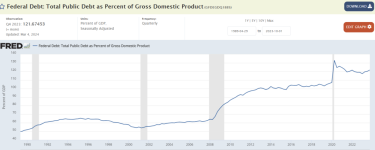medi
DP Veteran
- Joined
- Jan 13, 2023
- Messages
- 1,165
- Reaction score
- 390
- Gender
- Undisclosed
- Political Leaning
- Undisclosed
I know there are other threads around here that cover some of the ideas on the federal budget, but I first saw a post this morning on NHK about what seems to them to be new stuff and then went looking on U.S. sites and finally decided to use the NYT article just published:

 www.nytimes.com
www.nytimes.com
And after reading that article twice I have to honestly state there are some really weird ideas being proposed.
And let me start with this paragraph you'll find a bit down that NYT's page:
130 countries pledged to do WHAT!?

Biden Calls for Higher Taxes on Corporations and the Wealthy
The budget, which would cut the deficit by $3 trillion over the next decade, reinforces Biden’s efforts to counter Republican tax proposals that Democrats deride as giveaways to the wealthy.
And after reading that article twice I have to honestly state there are some really weird ideas being proposed.
And let me start with this paragraph you'll find a bit down that NYT's page:
The budget also assumes that a global tax agreement the United States helped broker in 2021 will be enacted, despite the fact that Republicans have refused to entertain the new levy. Under that agreement, more than 130 countries pledged to enact minimum corporate tax rates of 15 percent that firms must pay on their foreign earnings. Mr. Biden wants the U.S. rate to be increased from 10.5 percent, which is not compliant with the agreement, to 21 percent.
130 countries pledged to do WHAT!?


